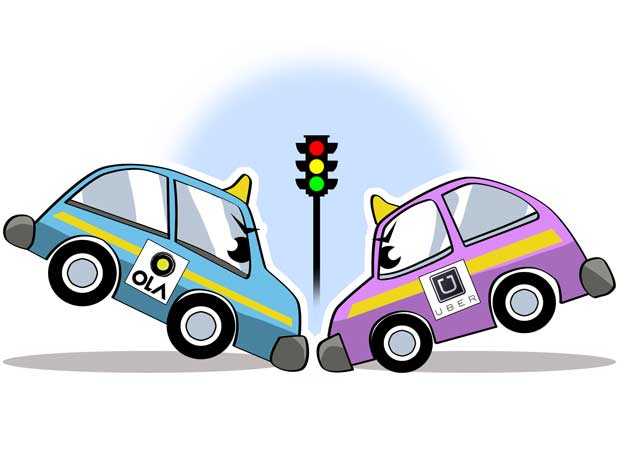Acrimony among unicorn startups is the latest trend. Gone are the days when companies made their dissent for the competition known in hushed circles. Today’s startups are far more aggressive. After several Twitter repartees between online e-tailers, Snapdeal and Flipkart, the latest fight is between taxi aggregators, Ola and Uber. The controversy however, has taken an ugly turn as both companies are trying to prove who’s more Indian!
After a blog by San Francisco-based Uber started the nationalism debate, Ola’s chief operating officer (COO) Pranay Jivrajka wrote in a blog, “Over the past couple of days, there has been an irrelevant debate around organizations operating in the country being national or international. Isn’t a company like Alibaba, run by a local entrepreneur like Jack Ma, ‘Chinese,’ despite having a majority of its shareholding from international investors? Aren’t the cutting edge technology solutions, high value jobs and Internet ecosystem that Alibaba has built, invaluable assets for China?”
Jivrajka further accused the “competition”, without directly naming Uber and said, “It is a shame that our competition has to fan a debate of nationalism to hide their identity of being a multi-national, with serial violations of law as a business strategy, not just in India, but globally. This debate in our view is not about foreign vs. local but who is respectful of the local laws and who is disrespectful.”
The latest to wade into the controversy is home-grown radio taxi operator, Meru, which said (yes, in yet another blog), that “Their (Uber’s) play book globally is the same: First break the law—then use billions of dollars of funding to kill the competition through unrealistic and predatory pricing to consumers and massive incentives to drivers. Then if regulators react to any violation of laws, create huge social media campaigns using the consumer base created through subsidized pricing to put pressure on regulators to change the laws.”
In my opinion it’s a strange topic to debate in today’s day and age, especially within the startup world that is still heavily dependent on foreign investors. But if we had to humour the argument, then Ola’s charges on Uber’s “foreign” attitude definitely strikes a chord.
Uber has time and again flouted the Indian law of the land. Take for instance the time that Uber ran its services for over a year using the “card on file” payment system, which brazenly flouted Reserve Bank of India’s diktat. Only when the RBI cracked its whip, did Uber fall in line.
More recently, Uber has been using white number plates to illegally ply their bike taxis in Gurgaon, which has been compared to “organized crime” by the regional transport authority (RTA). Uber did not follow the diesel ban in Delhi even though the High Court had passed an order. It took a contempt petition to clip Uber’s wings.
And globally too, Uber has had a notorious reputation running into trouble and ruffling feathers. From Melbourne to Buenos Aires, Uber has shown a penchant for trouble.
If being ‘desi’ is a question in point, Uber can be more Indian only by its usual Indian irreverence to law. In everything else, Ola has shown more obedience to rules and regulations.


















